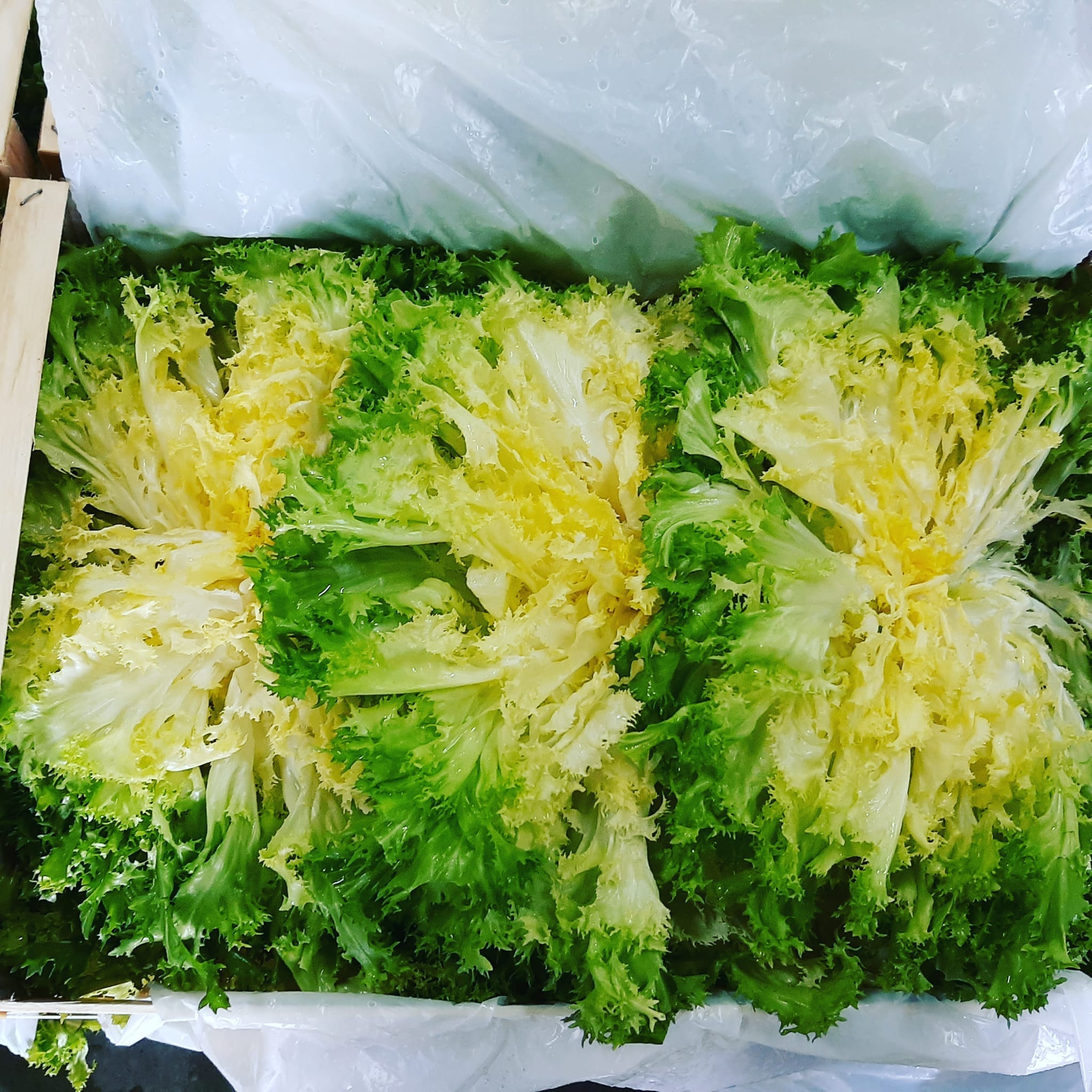Escarole, also known as broad-leaved endive, is a variety of chicory with broad, wavy, light green leaves.

Escarole has a slightly bitter and crunchy flavor, making it ideal for fresh salads or cooked dishes. It is rich in vitamins A, C, and K, as well as minerals like potassium and iron. Escarole's beneficial properties include antioxidant effects that help combat free radicals, and high fiber content, which supports digestive health and helps maintain satiety. It is recommended for those looking to improve digestion, control weight, and strengthen the immune system. However, individuals with kidney stones should consume it in moderation due to its oxalate content. Additionally, those allergic to plants in the Asteraceae family may need to avoid escarole.
TYPICAL SEASONALITY
The seasonality of escarole varies by region, but it is generally considered an autumn and winter vegetable. Here is an overview of its typical seasonality:
- Autumn: from september to november
- Winter: from december to February
Durante questi mesi, l’indivia scarola raggiunge il picco di qualità e disponibilità. Tuttavia, grazie alle moderne tecniche di coltivazione e alla serra, è possibile trovare la scarola fresca sul mercato per gran parte dell’anno.
Nutritional Values
| Nutrient | Value |
|---|---|
| Energy | 17 kcal |
| Water | 94.3 g |
| Protein | 1.2 g |
| Fat | 0.2 g |
| Carbohydrates | 3.4 g |
| Fibre | 3.1 g |
| Zuccheri | 0.3 g |
| Vitamina A | 218 µg |
| Vitamina C | 5 mg |
| Vitamina K | 231 µg |
| Folati (Vitamina B9) | 142 µg |
| Potassio | 314 mg |
| Calcio | 52 mg |
| Ferro | 0.7 mg |
| Magnesio | 13 mg |
| Fosforo | 28 mg |
